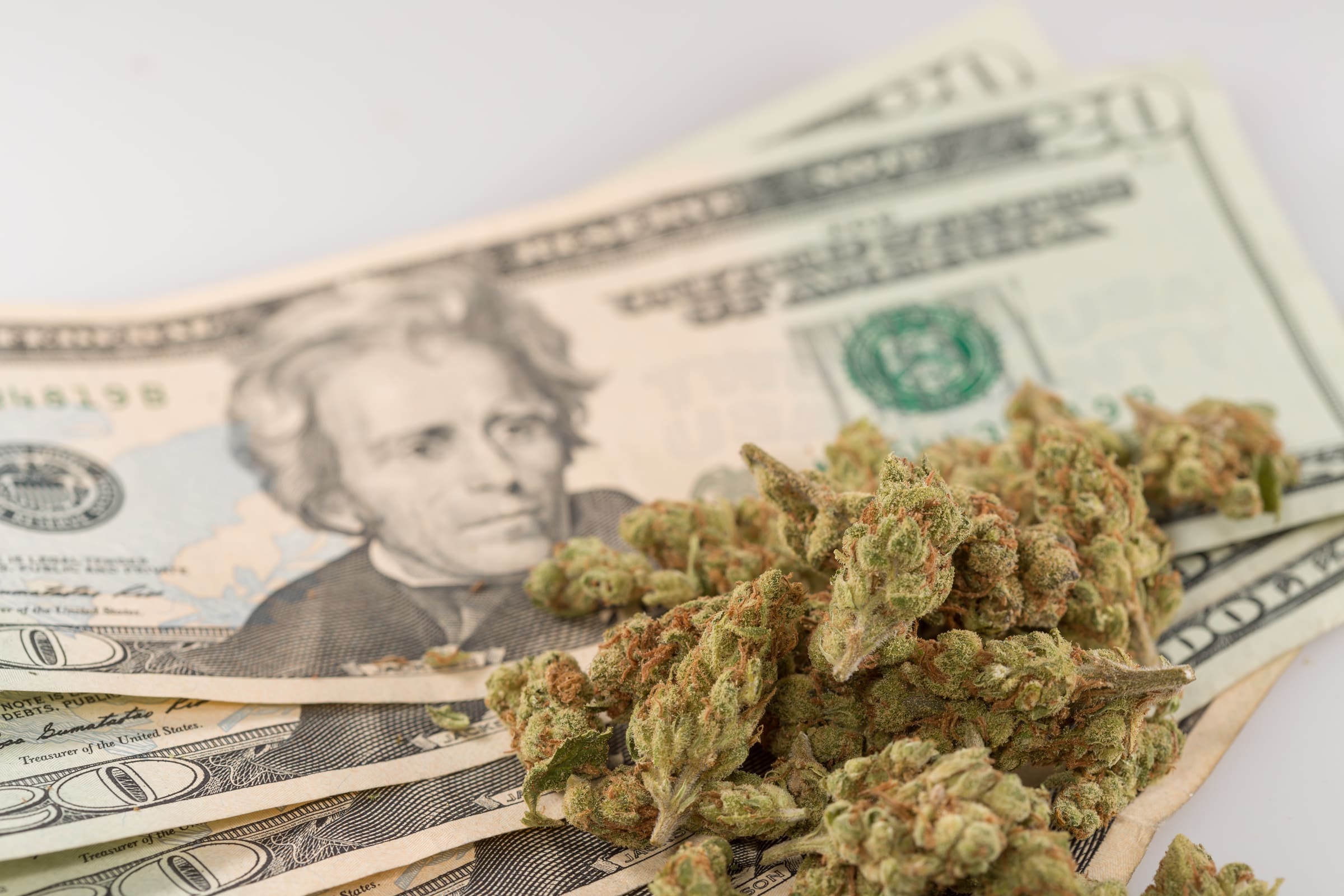Politics
New Jersey Officials Take Public Input On How To Spend Marijuana Social Equity Fee Revenue

“We did hear you loud and clear, and we did include in our report that no money should be used for law enforcement programs.”
By Sophie Nieto-Muñoz, New Jersey Monitor
Testimony gathered last week during three public hearings by the state Cannabis Regulatory Commission will help determine how officials will invest social equity fees raised from legal marijuana sales.
Advocates offered plenty of suggestions for the money, from buying baby bonds for low-income newborns and funding Black maternal health care centers to supporting reentry services for people leaving prison and creating a fund to help people harmed by the war on drugs.
“We should reverse how money was shifted from communities and individuals to law enforcement authorities. My education, employment, housing, mobility, wealth and family stability were all negatively affected by cannabis arrests,” said Joanne Zito. “All while Bergen County and the state required me to pay fees and fines.”
It’s been nearly seven months since the legal marijuana industry launched in New Jersey, which is now home to 20 dispensaries with hundreds more on the way. This week’s hearings marked the second round of public hearings on how to invest social equity fees hosted by the Cannabis Regulatory Commission.
“This will raise over the years hundreds of millions of dollars in our state and improve people’s lives,” the commission’s executive director, Jeff Brown, said.
What would you do with the dollars in fees raised from cannabis sales in New Jersey? Three opportunities to share ideas with the Commission. Register to speak at https://t.co/DJoStm76os or submit written comments at https://t.co/vgc2ywbexr pic.twitter.com/vawqoaYTL4
— New Jersey Cannabis Regulatory Commission (@NewJerseyCRC) November 10, 2022
The panel plans to compile public feedback into a report for the governor and Legislature. After reviewing the report, legislators will recommend specific investments to the commission, including how much should be allocated.
The state has collected about $11.9 million in tax revenue since the first legal sale on April 21. The committee now is calculating its total social equity fee revenue for the current quarter. Of nearly $80 million in sales between April and June 30, $4.35 million accounted for tax, of which the $200,000 was set aside as social equity fees.
The commission will spend some of that money on a technical assistance program to help aspiring entrepreneurs enter the industry and some for people in the underground market who want to transition to the legal market, Brown said.
The state adds $1.10 per ounce to all cannabis sold, the social equity fee determined by medical sales last year. Now that officials can include sales of recreational marijuana, which costs more, the fee will be bumped up to $1.52 per ounce in January.
By law, at least 70 percent of tax revenue is supposed to be invested in impact zones—typically high-poverty areas that have been ravaged by the war on drugs. Commissioner Charles Barker stressed the importance of dedicating money to these towns.
“We did hear you loud and clear, and we did include in our report that no money should be used for law enforcement programs, while also emphasizing the need to use tax revenue to reinvest in reentry support services,” Barker added.
Returning Citizens Support Group founder Edwin Chino Ortiz asked how grassroots organizations can partner with the commission to guide people who were incarcerated due to the war on drugs and ensure they have a pathway into the industry.
He also asked the commission to look at setting money aside for housing for people returning from prison, because home ownership is one of the biggest hurdles they face.
Pastor Weldon McWilliams of Christ Temple Baptist Church in Paterson suggested a guaranteed income for the city, which qualifies as an impact zone due to disproportionate poverty. A guaranteed income would help struggling Black and brown residents and curb violence in the city as well, McWilliams said.
“This notion of giving our residents, without any conditions, extra funds so they can do things like get to the grocery store and have a little bit more groceries in the refrigerator or not have to choose between food and medicine,” he said. “This will help contribute to a decline in some of the other atrocities that we see in our city.”
He also pointed to improving education and housing across the state, with Paterson’s lackluster schools and rising rent prices pushing out residents.
Karen Barnett advocated for another form of education—harm reduction and fighting misinformation so fewer young people are tempted to use marijuana.
“Too often we miss the opportunity to support existing services, in addition to funding programs that are the equivalent of allowing the fox to watch the hen house,” she said. “We can’t put ourselves in a position where we’re not looking at—it’s almost an oxymoron—eliminating the supply of individuals that want to use recreational marijuana.”
Social equity fees could go to funding baby bonds, said Yannick Wood of the New Jersey Institute for Social Justice. That was an idea introduced in 2020 in the Legislature, but it failed to move. A baby bond program would give low-income newborns a savings endowment they can access at age 18, which would help “level the playing field and target the state’s staggering racial wealth gap,” Wood said.
Wood, the institute’s director of criminal justice reform, also urged the commission to expand programs focused on youth mental health and violence reduction.
The commission’s next meeting will be 1 PM December. 2. While it will be virtually streamed on YouTube, the hearing will be the first in-person meeting since 2020. People can comment in person or submit written testimony.
This story was first published by New Jersey Monitor.




